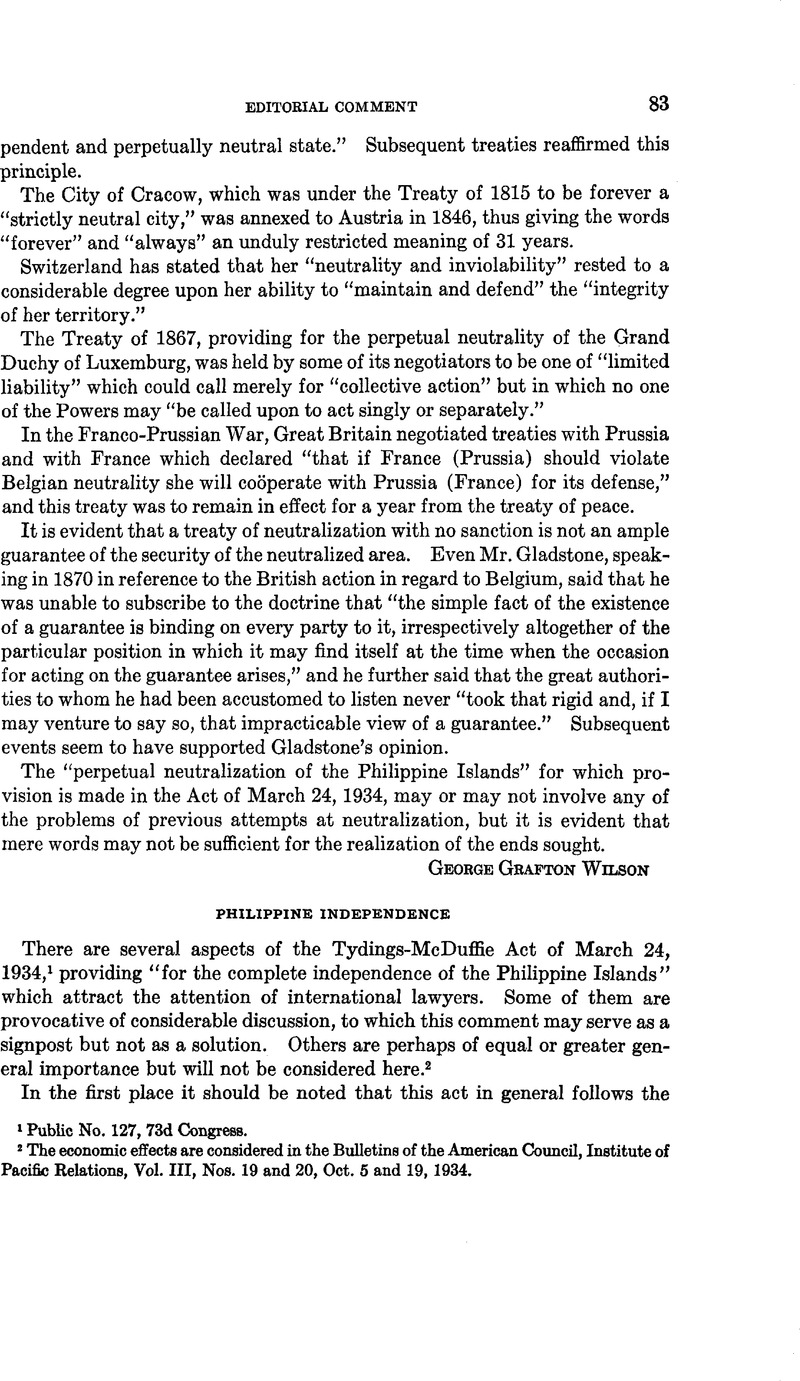No CrossRef data available.
Article contents
Philippine Independence
Published online by Cambridge University Press: 12 April 2017
Abstract

- Type
- Editorial Comment
- Information
- Copyright
- Copyright © American Society of International Law 1935
References
1 Public No. 127, 73d Congress.
2 The economic effects are considered in the Bulletins of the American Council, Institute of Pacific Relations, Vol. III , Nos. 19 and 20, Oct. 5 and 19, 1934.
3 This act is analyzed in Foreign Policy Reports, Vol. IX, No. 22, Jan. 3,1934.
4 Some of the similarities between the Platt Amendment and the Philippine Act of 1933 are pointed out by the Honorable F.C Fisher, former Associate Justice of the Supreme Court of the Philippine Islands, in an article entitled “The Status of the Philippine Islands under the Independence Act,” American Bar Association Journal (1933), Vol. XIX, p. 465.
5 In discussing this and other provisions of the 1933 Act, Judge Fisher, in the article cited above, concludes that during the Commonwealth period the Philippine Government will be in a state of “semi-sovereignty.“
6 Information supplied to the writer by the Department of State.
7 See the views of the Marquess of Lothian in the London Observer, as quoted in the New York Times, Nov. 18, 1934. Cf.Sir Frederick White, “The Philippines as a Pawn in the Game,” Pacific Affairs, Vol. VII (1934), p. 163.
8 Cf.Quincy Wright, “A Pawn Approaches the Eighth Square,” ibid.,p. 326.
9 As far back as 1911, Mr. Cyrus French Wicker discussed the neutralization of the Philippines, concluding that this could be accomplished without a relinquishment of sovereignty. Neutralization, p. 81 ff.
10 The recommendations of the Committee on the Philippines sponsored by the Foreign Policy Association and the World Peace Foundation state: “From the strategic standpoint, the majority of the Committee regards the possession of the Philippines by the United States as a definite liability.” Foreign Policy Committee Reports No. 2, January, 1934, p. 5.




